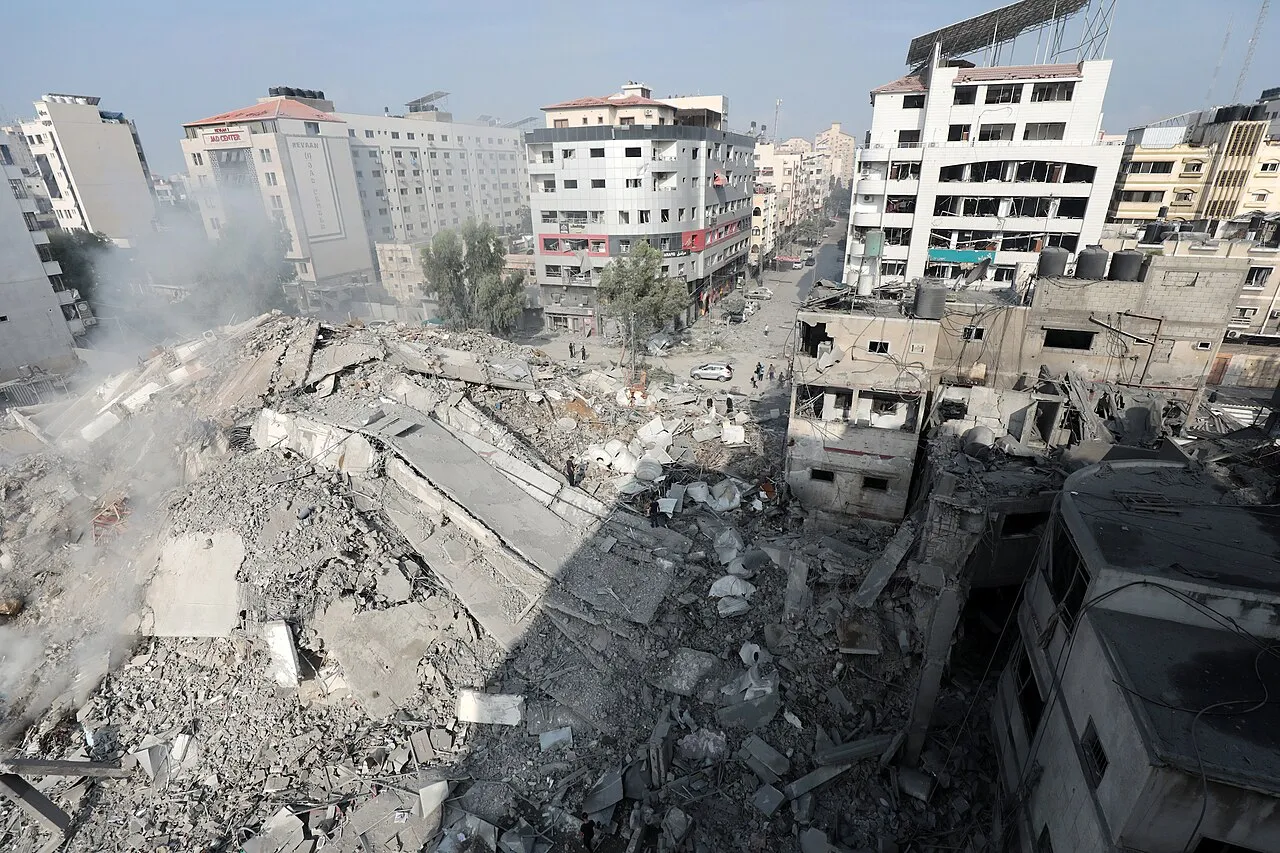The Global Times editorial published Nov. 13 begins: “The whole world is witnessing a human nightmare unfold in Gaza Strip: Al-Shifa Hospital, the largest hospital in Gaza, is bombed and surrounded by tanks, and temporarily cut off from the outside world. As a result of a fuel shortage, the death toll of critically ill patients and premature infants keeps rising, and ‘the hospital no longer functions as a hospital,’ while almost all northern Gaza hospitals have stopped service.... The current death toll in Palestine has exceeded 11,000, with approximately 40% being children. The World Health Organization states that one child dies every 10 minutes. Regardless of how the warring parties justify their actions, this scene will become an indelible scar in the history of human civilization.”
Despite Israel’s claims of Hamas operations in the hospitals and the Palestinian use of “human shields,” the “absence of concrete evidence and with Israel’s overwhelming military strength, images related to Al-Shifa Hospital have broken through the blockade and spread worldwide. This has resulted in an outpouring of international sympathy for Gaza civilians and strong calls for an immediate ceasefire. Although determining right from wrong in a war is sometimes challenging, the moral balance is clear when the situation in Gaza has reached such a point. Making a moral judgment on this matter is not difficult.”
The fundamental principle of humanitarian and human rights law, they assert, is that “the wounded and sick, civilians, medical personnel, ambulances and healthcare facilities should be protected.... It is also the bottom line of human civilization. Whoever touches upon this bottom line, regardless of the reasons, the nature of the behavior undergoes a fundamental change.”
The editors add: “There have been several incidents in world history where a single photograph changed the course of a war. Now, every passing second in the Gaza hospital crisis signifies the loss of lives, and there is an urgent need for a larger-scale mobilization and organization of international calls for ceasefire and peace. However, it is regrettable to see that the U.S. and its closest Western allies currently still maintain an ambiguous stance.... Washington’s related statements so far have been light and even perfunctory. Its loud voice in support of Israel’s ‘right to self-defense’ and its casual treatment of the humanitarian crisis undoubtedly form a stark contrast, [are] making people clearly see what their claimed ‘rules-based international order’ really is.”
They conclude: “In the face of a humanitarian disaster, the choice between pursuing one’s own political self-interest or upholding morality and conscience not only tests the conflicting parties but also tests the U.S.-led Western countries, which claim to prioritize human rights.”



